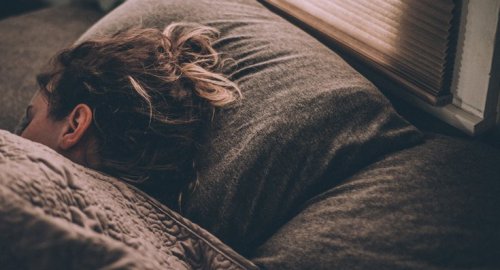
Exposure to moderate light during sleep can impact your health, study finds

- 16-03-2022, 10:06
INA- SOURCES
A single night of exposure to moderate light during sleep can increase nighttime heart rate and insulin resistance the next morning, according to new data from Northwestern University.
Exposure to light during sleep has long been known to have negative impacts on both cardiovascular health and the circadian rhythm – which is the natural process that regulates the sleep-wake cycle. However, not much was known about how it impacts cardiometabolic risk factors, which can lead to diseases like hypertension and diabetes.
Investigators from the study compared sleep patterns over the course of one night between moderate light and one night in dim light in 20 young adult participants. Moderate light exposure was described as 100 lux and was chosen because it was within the range used in previous studies. Dim light was described as 3 lux.
The moderate room light caused the body to go into a higher state of alert, which in turn caused an increased heart rate. It also caused increased insulin resistance the next morning and lower heart rate variability, which is an indicator for future health issues.
"The results from this study demonstrate that just a single night of exposure to moderate room lighting during sleep can impair glucose and cardiovascular regulation, which are risk factors for heart disease, diabetes, and metabolic syndrome," said Dr. Phyllis Lee, chief of sleep medicine at Northwestern University and lead author of the study. "It's important for people to avoid or minimize the amount of light exposure during sleep."
The study is based on previous research which shows that daytime light can increase the body's heart rate by activating the sympathetic nervous system, which puts the body into high alert. However, researchers found a similar physical response from nighttime light exposure.
A recent study found that when compared to no light exposure, any self-reported artificial light exposure on in the bedroom during sleep contributed to obesity among women.
"We showed your heart rate increases when you sleep in a moderately lit room," said Dr. Daniela Grimaldi, research assistant professor at Northwestern and co-author of the study. "Even though you are asleep, your autonomic nervous system is activated. That's bad. Usually, your heart rate together with other cardiovascular parameters are lower at night and higher during the day."
Glucose levels did not differ between those in the moderate and dimly lit rooms. However, participants showed higher insulin resistance the morning after sleeping in the moderately lit room.
Increased insulin resistance plays a key role in the diagnosis of type II diabetes. Researchers say that there is a possibility that those who are frequently exposed to nighttime light during sleep could be at an increased risk for developing the disease.
Though the study found increased heart rates and blood sugar levels among those who slept with moderate light, researchers did not find a difference in sleep quality between the two. But there was a lower percentage of REM sleep among those who slept in the moderately lit room.
Researchers point to the implications that could arise among populations who are more likely to be exposed to nighttime light, such as those in industrial areas. There are also implications for those who are already at an increased risk of heart disease, metabolic syndrome, and diabetes – all three of which are increasingly common ailments throughout the United States.
Lee and other researchers suggest dimming the lights in your sleep environment at least one to two hours before going to bed to make the transition easier and avoid the health impacts of nighttime light.
If you have a light in your bedroom, make it dim enough or closer to the floor so it does not negatively impact your sleep. Using red or warm tone lights as opposed to blue or white lights in the bedroom could help soothe the body and keep it from entering that active, alert state.
Researchers say using blackout curtains or sleep masks could be beneficial at blocking outdoor light. Things like keeping a television on (even with the sound off), or keeping a bright lamp on next to your bed could have a harmful impact on your heart or insulin levels.
Parker Probe survives 'touching sun' in record-breaking flyby
- Multimedia
- 09:06
Full decisions of today's Cabinet session
- politics
- 09:06
Earthquake rattles north of Kirkuk, says MOT
- Local
- 08:08
Iraq vs Saudi Arabia match kicks off, Arabian Gulf Cup 26
- Sport
- 24/12/28
Real Madrid becomes Arnold's new home
- Sport
- 24/12/28
Globe Soccer Awards 2024: all the nominees
- Sport
- 24/12/27












